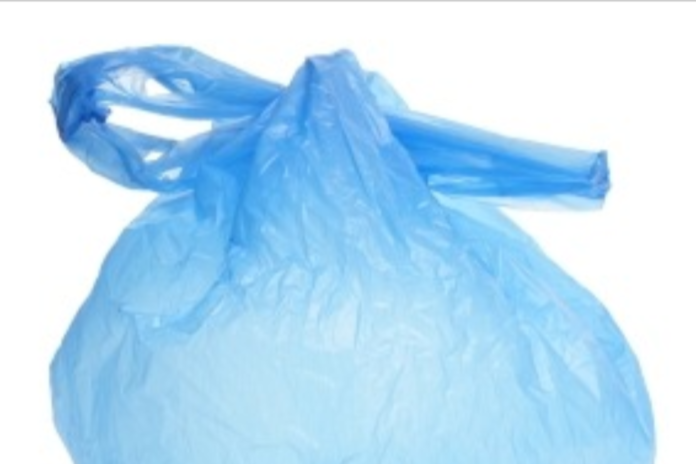With the urging of environmental groups backed by the celebrity firepower of actress Julia Louis-Dreyfus, the city of Los Angles banned plastic supermarket bags last week. The law received added support from the Los Angeles Times, which published a house editorial encouraging the city council to enact the ban. Without presenting any quantitative evidence, the editors wrote that plastic bags pose a “huge cost to the environment” and that reusable totes and paper bags are “better options.” Unsupported claims to this effect are widespread in the press and among advocacy groups, but they are at odds with scientific data.
In 2011, the United Kingdom’s Environment Agency released a study that evaluated nine categories of environmental impacts caused by different types of supermarket bags. The study found that paper bags have a worse effect on the environment than plastic bags in all nine impact categories, which include global warming potential, abiotic depletion, acidification, eutrophication, human toxicity, fresh water aquatic ecotoxicity, marine aquatic ecotoxicity, terrestrial ecotoxicity, and photochemical oxidation.
Furthermore, the study found that the average supermarket shopper would have to reuse the same cotton tote from 94 up to 1,899 times before it had less environmental impact than the disposable plastic bags needed to carry the same amount of groceries. This wide-varying amount of reuse that is required until the breakeven point is reached depends upon the type of environmental impact, but the median is 314 times, and it is more than 170 times for all but one of the 9 impact categories.
For example, a shopper would need to reuse the same cotton tote 350 times before it caused less fresh water aquatic ecotoxicity than all of the plastic bags that it would replace over this period. Given the improbability that the same cotton tote would last that long (its expected life is 52 reuses), in most cases plastic bags will have less environmental impact.
Why is this? Because the environmental impacts of supermarket bags are dominated by the energy and raw materials needed to manufacture them. Plastic bags are inexpensive because relatively small amounts of energy and raw materials are needed to make them. These same attributes that make plastic bags affordable and light also make them easier on the environment than alternatives like paper bags and reusable cotton totes.
Critics of plastic bags frequently argue that they “take hundreds of years to decompose,” and the LA Times editors advance this storyline by showing a picture of a dump with a caption that reads, “ENDURING: A plastic grocery store bag lies amid the trash at a Calabasas landfill.” Such logic ignores reality in two key respects.
First, modern-day landfills are generally benign because they have composite liners, clay caps, and runoff collections systems. As explained in a 1999 paper in the Journal of Environmental Engineering, modern landfills have “minimum odor nuisance,” “pose few problems after they are closed,” and “are a tribute to sanitary engineering.” Moreover, after being closed, landfills can be used for parks, commercial development, golf courses, nature conservatories, ski slopes, and airfields.
Second, even organic materials in landfills commonly take hundreds of years to decompose. Many people are ill-informed of this fact because of websites like WikiAnswers, corporations like Disney, major media outlets like CBS—and because they have been misled about this subject since their youth. Such misinformation flows from educational resources like the Environmental Education Exchange’s middle school curriculum on recycling, which states that paper bags take about a month to decompose in a landfill. Nearly the same content appears on EducationWorld.com, which has been honored by Apple, Microsoft, and Encyclopedia Britannica as one the world’s top education resources. These resources invoke the credibility of unidentified “scientists” to support this claim about paper bags and similar claims about other organic materials, but the scientific facts prove otherwise.
A study of landfills sponsored by the University of Arizona found that the tightly compacted contents of landfills create low-oxygen environments that inhibit decomposition. The details of the study were published in the book, Rubbish: The Archaeology of Garbage (2001), which explains that:
• “the dynamics of a landfill are very nearly the opposite of what most people think.”
• landfills “are not vast composters; rather, they are vast mummifiers.”
• “almost all the organic material” from the 1950s in a Phoenix landfill “remained readily identifiable: Pages from coloring books were still clearly that, onion parings were onion parings, carrot tops were carrot tops.”
• much of the organic material in an ancient Roman landfill that was twenty centuries old had not fully decomposed.
Up until the second century A.D., most literature was written on papyrus, an organic paper-like product. Papyrus is very vulnerable to moisture and deteriorates quickly when handled, but some of these documents survived thousands of years to the present era simply because they were deposited in landfills and thus shielded from decay. Like disposable plastic bags, reusable cotton bags wind up in landfills at the end of their useful lives and will likely be intact hundreds or thousands of years from now.
Another common talking point about supermarket plastic bags is that they are rarely recycled, but this argument ignores the fact that a large portion of supermarket plastic bags (40% in the U.K.) are reused as garbage pail liners. Interestingly, the U.K. study found that it is better for the environment to reuse these bags as garbage pail liners rather than recycle them. This is due to the environmental “benefits of avoiding the production of the bin liners they replace.”
Environmental impact studies can sometimes produce conflicting results, but Just Facts is unaware of any evidence that would overturn the general findings of the U.K. study. The study may even understate the environmental impacts of reusable cotton totes because it doesn’t account for regularly washing them, which is recommended because they can harbor dangerous bacteria from meat drippings and other foods.
The study did find that with moderate reuse, plastic totes made from polypropylene are better for the environment than disposable plastic bags, but this doesn’t negate the fact that standard plastic bags are a more environmentally friendly choice than so-called green alternatives like paper bags and reusable cotton totes. Thus, when governments outlaw plastic bags to “improve the environment,” they actually create more pollution.
_______
This article was reprinted with permission from Just Facts

















